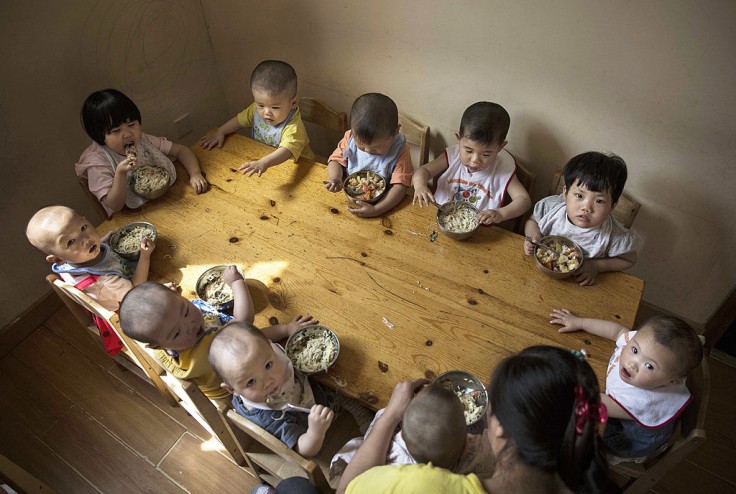
A new campaign has been launched by the Office for Health Improvement and Disparities around baby weaning to help parents safely introduce solid food to their children. The new guidelines were introduced by authorities after research found that 40 percent of first-time mothers had already introduced solid food to their babies before they were 5 months old.
Weaning is an important milestone for children within their first 1,001 critical days, influencing not only their eating habits but also their health later in life. Weaning also improves the abilities of babies to move food around their mouth as well as to chew and swallow.
The new campaign will promote the advice of the National Health Service regarding weaning and address confusion around how to introduce solid foods to children. The official guidance by the NHS recommends that solid foods should be gradually introduced to babies from around six months of age, alongside infant formula or breast milk.
Three signs that show a baby is ready for weaning
The NHS guidance states that a baby is ready for weaning if he or she is showing three key signs. The first sign is that the baby can stay in a sitting position and hold his or her head steady. The second sign is that the baby can already coordinate his or her eyes, hands and mouth. That coordination is vital as that means the baby can already look at food, pick it up and put it in his or her mouth. The third and final sign is that the baby can already swallow the food, rather than push it back out.
According to the NHS, young infants are usually developmentally ready to accept foods other than breast milk, or infant formula for that matter, by six months of age. The introduction of infant formula or solid foods to babies before they turn 6 months old is not recommended as that can reduce the amount of breast milk consumed by the child.
When that happens, infants are at greater risk of getting an infectious illness. Giving solid foods to infants that are breastfed before six months may also reduce their breast milk intake, which in turn will result in the baby not increasing total energy intake or weight gain.
New campaign around baby weaning comes at a critical time
The campaign comes at a critical time with new research by OHID showing that almost half of first-time mothers are introducing solid food to their babies by the time they are five months old, which is earlier than the recommendation of the NHS. The research also found that 64 percent of the mothers surveyed say they have received conflicting advice on what specific age to start weaning their babies.
Health Minister Maria Caulfield praised the latest campaign around baby weaning, saying it will "ensure parents have the support and confidence to introduce their babies to solid food and ensure they have the opportunity to thrive and achieve their full potential."